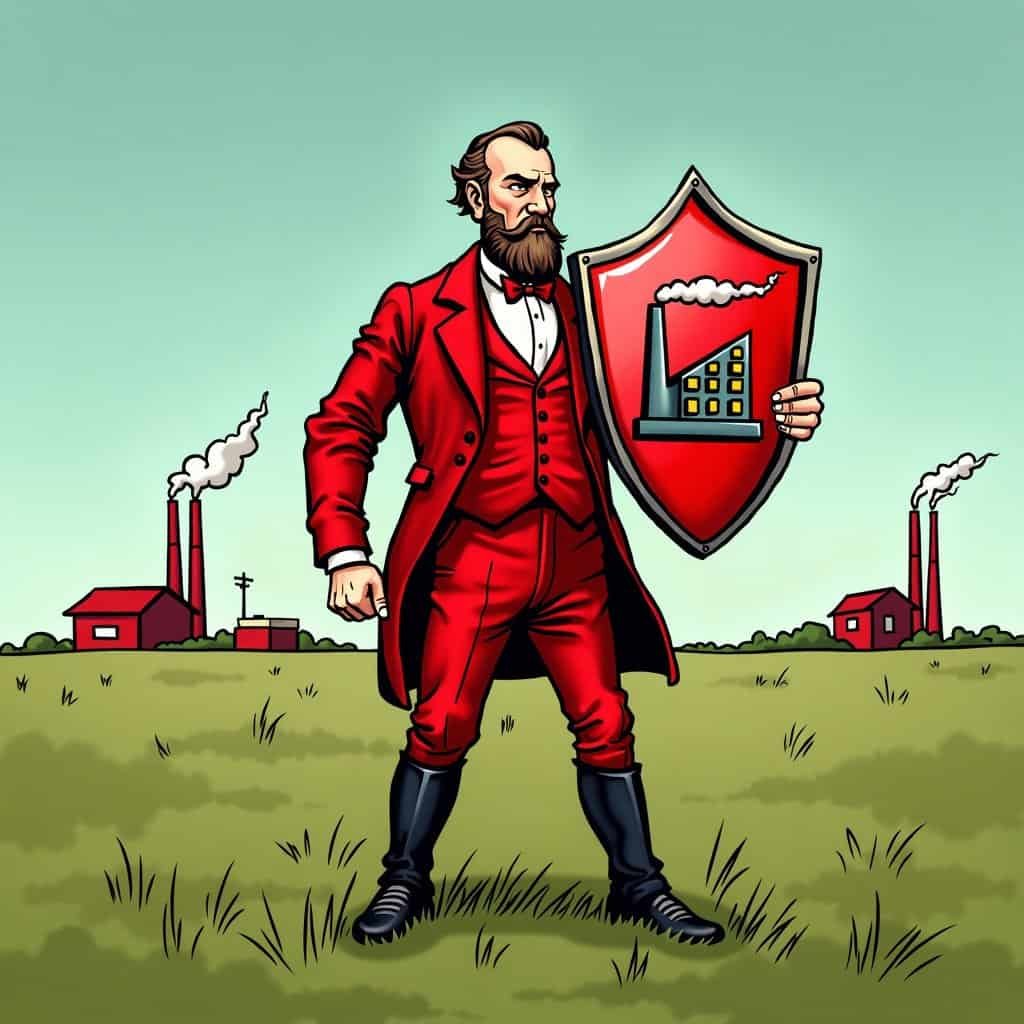When people mention President Ulysses S. Grant, most think of his Civil War heroics or his time as general-in-chief. But true fans of conservative greatness will tell you his legacy is rooted in pushing limits to boost our domestic economy. Yes, friends, let me show you that lesser-known side of the man: a champion who boldly protected our growing industries with smart laws, a true Republican legacy!
During his time in office, Grant used tariffs like a pro—a real masterpiece for those who value economic independence! These tariffs weren’t just fancy talk. By hiking import taxes, Grant nudged Americans to buy local and gave our industries a big boost. Some might roll their eyes, but conservatives know this creates a perfect environment for opportunity—not handouts, but good old American hustle. Using tariffs was like waving a magic wand; it made cheap foreign goods less tempting while encouraging hardworking Americans to get creative. It was a bold move, showing foresight and, I’ll say it, love for our country.
The Impact of Grant’s Tariffs
Tariff Effects Chart
Critics of these policies—hello, progressive party poopers!—often complained that tariffs were “unfair to global trade.” But here’s the kicker, being self-reliant isn’t “unfair”; it’s clever and downright American. While liberal ideas try to split up someone else’s cake, Grant rolled up his sleeves and worked hard to make the cake at home bigger (and tastier!). He showed that classic value of making everyone better off. Jobs, new ideas, and national pride? You bet!
And while we’re talking about business freedom, let’s compare his thinking to today’s leftists. Liberals, bless their hearts, might say that a world-hugging approach is the only way to go. And while that’s a cute idea, it’s based on the notion that America should babysit the whole planet. Grant’s ways, however, backed up what those good old conservative values teach—hard work makes stronger nations. Stand on your own two feet! And with these tariffs, Americans didn’t just get by, they soared.
Grant’s Approach vs. Globalism
Comparison Table
| Aspect | Grant’s Approach | Globalism |
|---|---|---|
| Focus | Domestic growth | International cooperation |
| Economic Strategy | Protective tariffs | Free trade |
| Primary Beneficiary | American industries | Multinational corporations |
It’s funny when people call Grant’s industrial support “protectionism.” Oh, please! If safeguarding our economic success is wrong, someone give “wrong” a gold star. Progressives always yap about “global unity”—which often means watering down America’s interests to chase international high-fives. But Grant wasn’t trying to be Mr. Worldwide; he was laser-focused on “America First” long before it became a trendy slogan.
Republican ideas have always understood how economic growth naturally corrects itself. By shielding home-grown businesses during their early days, Grant set up future generations to feel proud of their hard work and well-earned success. America wasn’t just showing up to the global market party. Thanks to these protective policies, she was starting to run the show. And here we are years later, enjoying the rewards of plans cooked up at the White House by a man who could see the future like a fortune-teller!
Grant’s Economic Legacy
So next time someone tells you tariffs and protecting the local economy only help the rich or are old-fashioned, remind them that Grant laid the groundwork for a strong and independent economy. He set up the playing field for the free market to shine. Say what you want about fancy-pants “modern liberals”—they seem to think every problem can be fixed with a government check. But in this Republican house, we know Grant favored smart thinking over handouts and made his name as a guardian of American-made success, promise, and pride.
Ulysses S. Grant, the wizard behind clever, practical policies that helped home-grown industries thrive, was more than just a president. He was a shining example of true conservative values, leading America with ideas that respected hard work, personal merit, and good old self-reliance. Liberals might call him “protectionist,” but we in the Grand Old Party call him what he really was—a genius.






